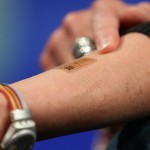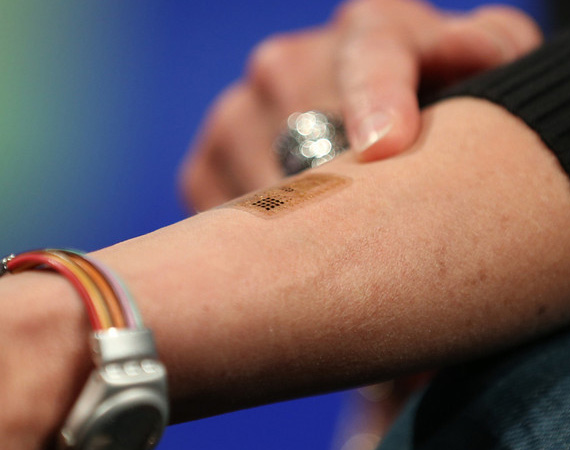Motorola’s forthcoming phones could use electronic tattoos or pills to identify users, it has been announced.

The technology, which aims to remove the need to enter passwords and replace them simply with a phone being close to a user’s body, was one of the suggestions Dennis Woodside, Motorola’s chief executive, California’s D11 conference yesterday.
The tattoos have been developed by Massachusetts-based engineering firm MC10, and contain flexible electronic circuits that are attached to the wearer’s skin using a rubber stamp.
Nokia has previously experimented with integrating tattoos into mobile phones, and Motorola’s senior vice president of advance research, Regina Dugan, a former head of the US Pentagon’s Defence Advanced Research Projects Agency, demonstrated the silicon-based technology that uses bendable electronic circuits. Initially designed for medical purposes, Motorola hopes the ‘Biostamps’ could now be used for consumer authentication purposes.
Motorola is also investigating the Proteus Digital Health pill, which has already been approved by the US Food and Drug Administration and was given European regulatory approval in 2010. Its computer chip is powered by a battery using the acid in a user’s stomach.
The pill creates a unique signal like an ECG trace that can be picked up by devices outside the body and which could be used to verify a user’s identity. It can be taken daily for up to a month, it has been claimed.
Woodside admitted that such experimental ideas were not going to be on sale soon. But he claimed Motorola had “tested it authenticating a phone, and it works.’
The former Google employee, however, who was parachuted in to Motorola after its $12.5billion acquisition in 2011, said “Having the boldness to think differently about problems that everybody has every day is really important for Motorola now.’”
So, if you’re tired of entering your password and want your computer or smartphone to know when you are nearby and ready to work, keep up with Motorola and its ATAP group.









